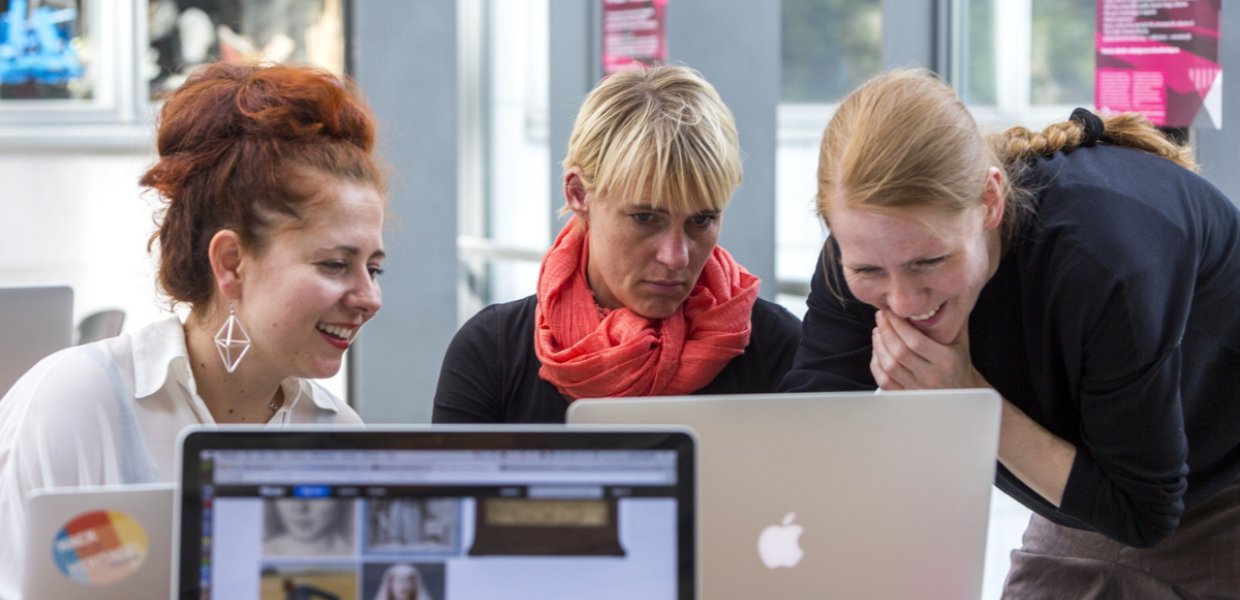Wikipedia is the world’s largest online encyclopaedia, with articles in over 300 languages. In one month, it receives more than 16 billion page views. This ever-growing knowledge portal is primarily developed, written and edited by volunteers around the world. The Danish Wikipedia has an average of 30 million page views and approximately 3,000 users contributions each month, to old as well as new articles - and Danish is only spoken by around 5.8 million people, which includes toddlers!
Our project, Wikipedia in School, which we presented in a workshop at Europeana 2020, centres on teenagers (13-20) learning to participate in Wikipedia. We want to create teaching materials for use both in school and in cultural institutions. The team behind the project is made up of GLAM professionals, actively working with Wikipedia in Denmark to teach and communicate digital cultural heritage.
Wikipedia in the GLAM sector
Why is Wikipedia interesting for the GLAM sector? There is an immense overlap in interests. The GLAM sector has vast amounts of digitised cultural heritage and knowledge which could enrich Wikipedia and its billions of readers. And Wikipedia could gain from the many potential young contributors becoming interested through the sector’s teaching material. In short: GLAMs have open, trusted data that the open encyclopedia needs; Wikipedia has enormous outreach that GLAMs need to be visible and relevant beyond our usual communities.
In Denmark, we have a unique collaboration between Wikimedia Denmark and a number of central GLAM institutions. We have monthly meetings as well as a Facebook group for collaboration and to facilitate the exchange of knowledge and skills (throughout the COVID-19 pandemic, all meetings have been virtual). In this community, we plan large scale mass uploads of digital cultural heritage, help each other to develop new articles, guide newcomers and engage different communities to join and contribute their particular knowledge. We have a common cause: to enhance Wikipedia as a trusted source and increase the reach of GLAM collections and knowledge to the public.
Wikipedia in school
Wikipedia is a source through which our common cultural heritage could be spread locally, nationally and globally. However, many young people lack the tools and knowledge needed to start writing on Wikipedia. We believe that an effort to establish an understanding of Wikipedia as a forum for democratic citizenship, where young people can learn source criticism and language development, is required in school.
Through the Wikipedia in School project, we are proposing to teach pupils to navigate Wikipedia, introduce them to the thoughts and ideas behind free and equal information for all, and outline the difference between a solid and a weak source, so that they can start contributing to Wikipedia in potentially any subject. It could be writing about Danish female poets from the 1800s in a literature class or describing mathematical proof in a maths lesson. The difference is that in Wikipedia, their essays are not only read by their teacher, but potentially millions of users. And of course, they will learn to receive feedback as they see corrections and changes in their articles over time.
In order to develop a robust framework for this project, we plan to use a shared tool for collaboration and management, to make the complexity of students working on different pages easy to manage. We have translated the tool into Danish, and it’s fairly straightforward to make new language versions. We also plan to create a catalogue of approaches and types of activities that allow students to help each other and contribute to Wikipedia in the ways they prefer and find meaningful. These two areas will be the backbone of our education activities so that they can be structured as an easy-to-manage collaboration.
Meanwhile, the project will see cultural heritage institutions learn how to share their digitised collections through mass upload from a database, or make a photographical collection a shared and integrated media resource. Institutions will learn how to develop new articles focusing on central themes in their collections, as well as interview people from their institution and upload the audio files as primary sources to Wikipedia. The possibilities are endless!
Join us!
Wikipedia in School is a non-commercial project initiated by a small group of people and some central cultural institutions in Denmark working with digital heritage, open source and free knowledge. We are currently working on funding the project, and we hope to build a community of interested GLAM and education professionals across Europe that can pursue opportunities for funding together.
If you are interested in joining our international community to exchange thoughts, develop new ideas and strengthen our common goal - to share European cultural heritage and enhance knowledge among our citizens- then please get in touch by joining our Linkedin group or emailing Majken Astrup (majken@my-small-world.com).
You can also watch the workshop on Wikipedia and OpenGLAM in school from Europeana 2020.

